Steve Kriss
skriss@mosaicmennonites.org
They were busy weeks of journeying, listening and leading. Beginning with a quick jaunt for an evening over chips and salsa in Vermont and concluding with a dinner at Perkins Restaurant just off Route 80 in Bloomsburg, PA, I had the opportunity and privilege (and sometimes burden) of listening and conversing with about 150 conference leaders through the Assembly Scattered gatherings this fall. I attended every session with the exception of one (Alpha, NJ).
While they don’t provide a coherent narrative, this triptik is about who we are and who we might be becoming. They give glimpses of both the faithfulness of the past and the struggle for the future. In all of the journeys, one thing emerged clearly. I began to see our conference as a body with a heart somewhere around the Route 113 corridor. The heart has some muscular responsibilities to pump out that which might refresh, energize, and renew and to recognize that the essential work of hands, feet, and head may be done in other places.
The first gathering was at Bethany Birches Camp,intended for leaders from Vermont our communication patterns were crossed and attendance was low. The lack of effective communication was emblematic to how it seems Vermonters might feel about their relationship to the rest of FMC–disconnected and distanced. I have reminded my colleagues again and again that Vermont’s not that far away, that a six hour drive is doable. The drive back from the weekend tired me out, to be honest, and I found myself looking for a hotel at 1 a.m. in New Jersey after having driven the bulk of the way back to Philadelphia. I became convinced that it wasn’t good for me or anyone else on the road to continue further down the Turnpike to Philadelphia.
At Franconia church, I stood in the lobby and in the parking lot until nearly 11 p.m. Though it seemed hard to dream and imagine where the conference might be going while we were sitting together from 7:30-9 p.m., it wasn’t hard afterward. I listened as a congregational leader described his hopes and dreams for his church, for all of us to be in the marketplace,sharing faith with open hands and hearts. What would it mean to open our churches to the community,he asked, not only on Sunday morning, but all week?
I arrived in Bally with time to grab something to eatat Longacre’s Dairy Bar, a community fixture. I had good homemade ice cream and a burger, watched and listened as high schoolers served food and two women next to me split a sandwich so that they’d have room for dessert sundaes. I took a quick drive up into the hills just outside of town, got my first glimpse of Barto and realized how beautiful this still somewhat rural area is. I spoke with Jim Longacre (Salford) at length afterward. Jim’s family has farmed in this community, initiated the dairybar that I enjoyed, and wondered what it would mean to search deeply for Anabaptist responses to the complicated realities of our time. Even at Bally, in the midst of a picturesque small-town, change is coming as suburbanization from Allentown creeps southward and Philadelphia creeps northward.
As I led our time together at Perkasie I was acutely aware for the first time, that I am still new to Franconia Conference. A tenure of a little over a year doesn’t do much within an organization that’s got more than 300 years of history. I felt vulnerable, both to the questions and the possibilities that persons were asking. I felt burdened to some degree, who am I to be entrusted with the dreams of these persons? Ertell Whigham, Leonard Dow, and Ken Burkholder, my vision and financial plan teammates were there, along with other conference staff; but in leading and inviting consideration of Scripture and dreams, there was a juxtaposition of new leaders, rooted ministry and ongoing questions. This was the first gathering where the tough question of what is going to happen to the Indian Creek farm emerged. We acknowledged it carefully. I read later in the responses from Perkasie that it would be helpful if the conference would find ways to inspire new vision.
It rained hard the night we met at Hersteins. I was surprised on my drive there to pass a Buddhist temple right in the middle of rural Montgomery County. The world has maybe already arrived here. The night was dark and the gathering in a narrow room at the rear of the sanctuary felt somewhat awkward because it was hard to see each other’s faces. I talked with Wes Boyer (Vincent) who was excited about all that FMC is doing, grateful for the way that the conference could move into influencing and shaping Mennonite Church USA and looking forward to hosting Jim Schrag on the Sunday morning following Conference Assembly.
As I arrived, somewhat late, at Line Lexington I noticed the cemetery, the generations of faithful who have gone before. I was aware of its presence behind me as I led that night and as I listened. I stayed late again listening to someone who wondered if change was really possible. I heard divergent viewpoints. I heard us wonder where the Conference might be going and how we might better understand it. I heard questions about whether the work that we had done in the past was recognized as significant. I wonder how those who have gone before us had experienced cultural changes? I heard one pastor remind us that our work is ultimately about sharing the Gospel. In this evening, I experienced much of our latent divergences in viewpoints. How do we move ahead? What is the significance of our institutions from previous generations? What is the role of evangelism? What are we doing in this visioning process anyway?
Gathering at the Gryphon Coffee Shoppe in St. David’s to meet with Mennonite students at Eastern University turned out quite differently from other Assembly Scattered. With this group of seven students, we (FMC staff Dave Landis, Jessica Walter, and I) listened and wondered. Students offered practical ways to connect and shared good ideas that ranged from supporting justice and peacemaking initiatives on campus to finding a way to play a giant game of Dutch Blitz with local Mennonite leaders. We wondered what our roles and responsibilities might be as followers of Jesus in the wealthy Philadelphia Mainline suburbs? The students who came that night were from different conferences. They didn’t know that it mattered whether they were from Lancaster or Franconia congregations. And maybe that in and of itself gives us a glimpse of our future.
The meeting at West Philadelphia was a cultural mix of folks. Here we were Franconia Conference—black, white, Indonesian, Slovak, Mexican; Pentecostals, cynical scholars, and peaceniks. Meeting in the basement of Calvary United Methodist Church in West Philadelphia in front of a large colorful mural created a different context from our other gatherings. Communication across cultures wasn’t easy for us. We strained to hear each other both figuratively and literally. People talked about how they might change their city. They wondered what resources the conference might have to help them do that. There was a presence of persistent hope tamed by a bit of cynicism, knowing that it’s never easy to change the city (or the organizational embodiment of the church) and the call to change the relational pattern of the city and the suburbs is a long, hard road.
By the time we met with leaders from Conference Related Organizations, I was tired. I knew that this was likely our most disparate gathering, it’s hard to corral the diverse ministries and possibilities of Franconia Conference CRO’s. What do our ministries share in common? Can our centeredness in Christ hold us together? I spent some time with Rick Young, the new executive director of Liberty Ministries, and he wondered if he was really allowed to dream and if his dream could include revisioniong the Indian Creek Farm? I told him we’d take his dream seriously. I hope we do. Where do our dreams overlap and exponentialize?
The last gathering was intended for Northern Pennsylvania church leaders. This was my first real immersion in the diaspora congregations north of I-80. They are almost as far apart from each other as they are from the Conference Center in Souderton. I picked what I thought was a central meeting location in Bloomsburg where I knew there was a Perkins Restaurant. Juanita Brodnicki remarked that it was close to where her dad (retired pastor at Mennonite Bible Fellowship) used to meet with his bishop (so at least we were in good historical company). We gathered together in a small room at the rear of the restaurant with a gracious waitress, quick smiles and hopeful conversation tempered by the lingering hard economic realities that persist in Pennsylvania’s mountain communities. I heard a poignant question, “When was the last time that someone sold a farm to do ministry in another community?†There were questions about whether it was time to do that again.
In these weeks of listening, we focused on passages from 2 Chronicles about Solomon’s conversations with God, his recognition of God’s faithfulness, and his petition that God might grant him knowledge and wisdom. It’s a prayer appropriate for our day in this time of discerning and listening, in hoping, doubting, and believing. We’ll need the wisdom that comes from God and the practical knowledge of experience and imagination that might carry us into what El Savadoran martyr Oscar Romero called, “the future that is not our own.†This is God’s future and we’re all invited to create, to enliven our own possibilities of work, and hope in a new day.
The Long Road to New Jersey
Karen Moyer
The trip to Alpha that should have been 45 minutes, turned into 95 minutes as Charlotte Graber Rosenberger and I struggled to interpret misleading software directions. This challenge of finding the church perhaps symbolizes the distance the gathered group that evening sometimes feels from the Conference. They asked for help to educate their congregations on the benefits of belonging to a broader body. They also invite representatives from churches from the “heartland†to occasionally worship with them. They dreamed of partnering with other congregations on joint work projects and developing relationships with other congregations and Conference leaders to strengthen their understanding of what it means to be Anabaptist/Mennonite in their communities.

 The flood surprised me as much as anyone who was there to witness it; the river of tears, the enormous emotional tidal wave that washed over me. It was seven years ago now, at the healing service at the Mennonite Youth Convention in St. Louis. The theme was “Come to the River,†and come to the river, I did. More accurately, perhaps it came to me.
The flood surprised me as much as anyone who was there to witness it; the river of tears, the enormous emotional tidal wave that washed over me. It was seven years ago now, at the healing service at the Mennonite Youth Convention in St. Louis. The theme was “Come to the River,†and come to the river, I did. More accurately, perhaps it came to me.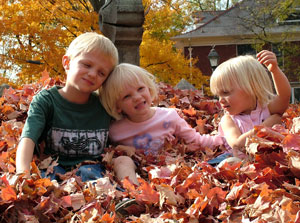 The LORD is my rock, my fortress and my deliverer; my
The LORD is my rock, my fortress and my deliverer; my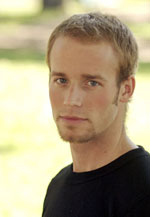 Our leadership cultivation and communication team meets on Tuesday mornings at Bucks County Coffee in Philadelphia’s Manayunk neighborhood. I often wake up early to make the bike trek south from Harleysville, finishing the route along the Schuylkill River.
Our leadership cultivation and communication team meets on Tuesday mornings at Bucks County Coffee in Philadelphia’s Manayunk neighborhood. I often wake up early to make the bike trek south from Harleysville, finishing the route along the Schuylkill River.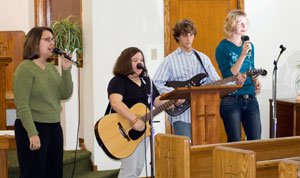 I was going to learn about living simply. I was going to learn about living in community. I was going to experience what it was like to live among the poor. I was trading in my safe, warm, suburban Philadelphia apartment for a rambling, drafty, old house in Kernville. I was trading in easy access to the beach for a mountain view outside my front door. I would no longer have papers to grade, old friends to visit or a regular paycheck to deposit. Life would be different, but I trusted that God was directing me to lead a Service Adventure unit in Johnstown, Pennsylvania, for the next two years.
I was going to learn about living simply. I was going to learn about living in community. I was going to experience what it was like to live among the poor. I was trading in my safe, warm, suburban Philadelphia apartment for a rambling, drafty, old house in Kernville. I was trading in easy access to the beach for a mountain view outside my front door. I would no longer have papers to grade, old friends to visit or a regular paycheck to deposit. Life would be different, but I trusted that God was directing me to lead a Service Adventure unit in Johnstown, Pennsylvania, for the next two years.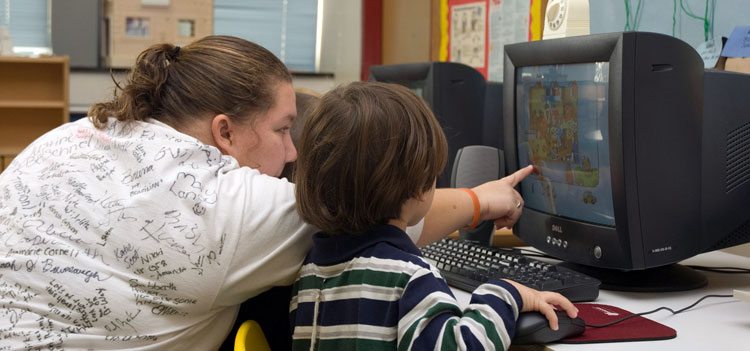
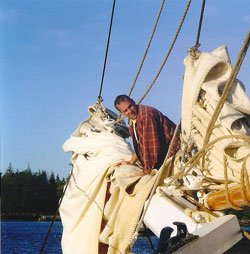 Editor’s Note: Each year Franconia Conference and Eastern District Conference award Clayton Kratz scholarships for emerging leaders who are preparing for roles in church leadership. This year Intersections invited Brad to tell his story and sojourn in pursuing a vocation at the intersection of church leadership and law school.
Editor’s Note: Each year Franconia Conference and Eastern District Conference award Clayton Kratz scholarships for emerging leaders who are preparing for roles in church leadership. This year Intersections invited Brad to tell his story and sojourn in pursuing a vocation at the intersection of church leadership and law school. 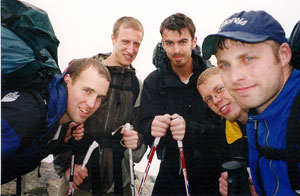 I loved my six years at Spruce Lake. Solidifying the foundation of the Expeditions program, planning trips, leading an exceptional staff, and developing relationships with parents and campers were tremendous experiences. During this time, I was led to pursue a joint law and theology degree. As I kept in touch with a few of the delinquent youth from New Hampshire and witnessed similar experiences at Spruce Lake, I became upset by the breakdowns in the school, welfare, and court systems of the state. I saw good kids who had suffered tremendous abuse, yet had a real inner strength and desire to change, floundering without any support from their families, communities, or schools. While some of these kids were not in the court system yet, circumstances were harming and inhibiting their actual and potential lives.
I loved my six years at Spruce Lake. Solidifying the foundation of the Expeditions program, planning trips, leading an exceptional staff, and developing relationships with parents and campers were tremendous experiences. During this time, I was led to pursue a joint law and theology degree. As I kept in touch with a few of the delinquent youth from New Hampshire and witnessed similar experiences at Spruce Lake, I became upset by the breakdowns in the school, welfare, and court systems of the state. I saw good kids who had suffered tremendous abuse, yet had a real inner strength and desire to change, floundering without any support from their families, communities, or schools. While some of these kids were not in the court system yet, circumstances were harming and inhibiting their actual and potential lives.